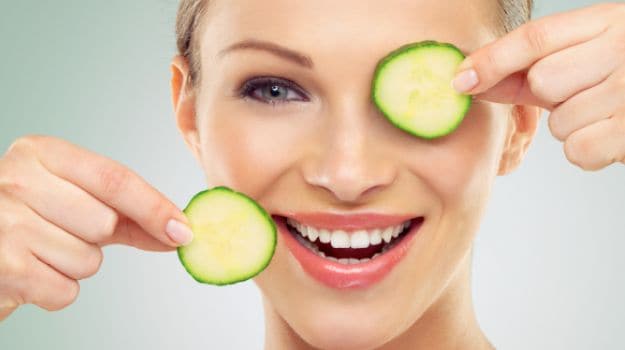6 Ways To Improve Eyesight Naturally | Do’s & Don’ts For Vision
Have you ever thought about what are different ways to improve eyesight naturally? Do you feel like your eyesight is getting worse?
Maybe it’s more challenging to decipher the writing on traffic signs and menus these days. Perhaps it is even more challenging when the lights are off.
What is going on? Loss of eyesight is a common side effect of becoming older. The good news is that modern medicine has made great strides in helping people enhance their vision.
If you can put off buying glasses or having potentially pricey surgery, you should. There’s a good chance you won’t need that; instead, you may use these strategies to quickly and easily enhance your eyesight without resorting to artificial means.
Carrots, sweet potatoes, and spinach are all excellent sources of vitamin A, which is known to be beneficial to eye health.
Additionally, if you operate in a hazardous workplace, you may safeguard your eyes by donning a pair of sunglasses or safety goggles.
In order to protect your eyes, you should look away from the screen every 20 minutes for at least 20 seconds.
While corrective lenses like glasses or contacts might assist, there are other, equally effective means of enhancing visual clarity.
What you eat, what you wear, and whether or not you smoke can all have an effect on your eyesight.
To help you safeguard your eyes and make the most of your vision, we’ve compiled a list of six all-natural strategies.
Understand What Your Vision Impairment Is
However, not every eye problem may be remedied with natural means. In certain contexts and ways of life, some are preferable to others. To get you started, these are the most frequent types of visual problems:
- Nearsightedness
- Farsightedness
- Presbyopia
- Astigmatism
- The Illness of the Eyes Due to Computers
Numerous conditions related to the eyes might also manifest themselves.
The list includes glaucoma, cataracts, and macular degeneration. Getting a proper diagnosis from an eye specialist is the first step in improving your eyesight naturally.
Schedule a visit to the eye doctor to get your eyes and eyesight thoroughly examined. The first step toward recovery is getting a definitive diagnosis from your doctor.
Know what your chances of success are. Your doctor may provide non-holistic treatment if you’re 80 years old and experiencing eyesight loss.
That’s because it’s quite improbable that your 80-year-old eyes can be magically transformed into 20-year-old ones. While not a panacea, natural eye care can be effective for many people with visual problems.
Your eye doctor will be able to advise you on realistic expectations for each treatment option. However, it is important to keep in mind that drastic measures like surgery or specialised eyewear are not your only choices.
Improve Your Vision Naturally Through Your Diet
Enhancing your nutrition is the first step in restoring your eyesight. How many of the nutrients necessary for healthy eyes do you obtain on a daily basis?
Start keeping a food diary if you have no idea what you’re eating. Get out a notebook or your phone and keep track of what you eat for a week. Look back at it to determine how much of the following nutrients you took in:
- Essential fatty acids (both omega-3) antioxidants
- Water
You can discover through your food diary that you consumed an unhealthy amount of sugary and fatty meals. These foods are vitamin deficient and may cause long-term harm to your eyes.
You should start by improving your diet and getting enough of water. This will guarantee that your eyes receive the nourishment they require to perform at their best and remain healthy.
Fortunately, many of the nutrients your eyes require are also necessary for the proper functioning of other organs in your body.
It’s not just your eyes that will benefit from a more healthful diet; your entire body will feel better and perform better as a result.
Assess Your Lifestyle And Break Bad Habits
Do you engage in risky behaviours that might negatively impact your health? The way you live your life, including any vices you may have, might have an effect on your eyesight.
Particularly detrimental to eye health are alcoholic beverages and tobacco use. Glaucoma, cataracts, AMD, dry eyes, and diabetic retinopathy are among conditions that can be exacerbated by cigarette smoke.
The eyes of nearby infants are especially vulnerable to the dangers of secondhand smoking. If you smoke cigarettes, you increase your risk of developing a debilitating illness of the eye.

The second is equally as harmful, and that is alcohol consumption. In severe cases, it can lead to a loss of vision by weakening the muscles that support the eyes.
The optic nerve is used by the brain to receive visual information and can get damaged from alcohol consumption. Furthermore, it may result in headaches, sensitivity to light, blurred vision, inflamed eyes, and impaired colour vision.
Stopping your use of tobacco and alcohol is the first step in restoring your natural eye sight. Or at least make significant reductions.
One such aspect of your lifestyle that may be harming your eyesight without your knowledge is using a computer.
CVS
Excessive use of any digital screen, including computers and cellphones, can lead to significant eye problems. Computer Vision Syndrome is the most well-known example (CVS). Eye fatigue, dryness, redness, and inflammation can result from excessive screen usage.
In both the professional and educational spheres, CVS is ubiquitous. The eyes’ ability to focus on distant objects might deteriorate with prolonged screen use. If you want your eyesight to improve, it’s best to spend less time in front of a computer.
This is obviously not feasible for many professions or educational pursuits.
You may counteract the negative effects of prolonged computer use by taking frequent breaks. To help you remember to use the 10-10-10 Rule, you may set a timer on your phone for 10 minutes every time you use it.
Get out of the house daily and take use of the wide range of distances at which items can be seen outside.
You may give your eyes a much-needed rest by practising palming. If you give your eyes some downtime, they’ll be able to recover and your eyesight will improve on its own.
Get Your Whole Body (And Eyes) Active
The current generation is the least active in history. Most youngsters today would rather stay home and play computer games than go outside and run about.
Their eyes and general health will suffer as a result of this. Our eyes require adequate oxygen and blood supply.
Increasing your heart rate at least once per day has a beneficial effect on blood flow to all of your body’s tissues and organs. Make time every day to go for a brisk walk, jog, or other kind of exercise for 30 minutes.
You should force your children to put down their electronic gadgets and go outside.
The next step is to perform eye exercises. Doing these stretches and exercises can help you develop stronger, more mobile eye muscles.
As a bonus, they may help your eyesight in a completely natural way. It’s possible to improve your eyesight with any number of workouts.
It’s important to exercise the muscles that control your eyes, just as you would any other part of your body.
Every day, challenge yourself by moving your body and your eyes. When you take care of your health and do some simple eye exercises, you may enhance your eyesight naturally.
8 Do’s And Don’ts To Improve Your Eyesight
More and more of our time is spent staring at tiny text and images on our smartphones and televisions.
Ask yourself if you’re getting enough of the eye-healthy nutrients you need. Do you have a routine of relaxing activities that you follow?
In the midst of our hectic schedules, during which we may spend several hours staring at a computer monitor or reading intently, few of us stop to get our eyes checked.

There are, however, a few straightforward workouts you may perform that won’t take up too much of your time or energy.
Expert Opinion from an Eye Doctor: “By gently bobbing your head up and down during the day, you may improve blood flow to your neck and eyes, which will help you perform better on the job. Don’t strain your eyes by staring directly at the sun, either. Cataracts and macular degeneration are two eye diseases made worse by prolonged exposure to sunlight. In addition, look for shades that filter out at least 99% of UVA and UVB radiation.”
Fortunately, we’ve compiled a list of quick and easy ways to improve your eyesight and protect them from harm.
Do’s And Don’ts
DO consume cod liver oil, sweet potatoes, butter, papaya, blueberries, apricots, and grapes; these foods are high in vitamin A, vitamin C, lutein, and beta carotene, all of which aid in eye restoration.
NEVER turn down your serving of vegetables! Eat greens like kale, spinach, collards, zucchini, and Brussels sprouts as a snack.
Spend some time in bed recuperating
DO: obtain enough of sleep, since this will help your tired eyes to fully relax from their strain.
AVOID: focusing on one thing for too long. Stop what you’re doing every 5-10 minutes and give your eyes a rest. It’s important to drink water.
If you frequently experience dryness, blurriness, or fatigue in your eyes, DO increase your water intake.
Rather of merely washing your face, try these instead. If you have a few minutes to spare, try filling your mouth with water and swishing it around your mouth while keeping your eyes open. Aside from the obvious health benefits, this will also leave you feeling revitalised.
Tend to your eyes with some deep relaxation activities. Rub your hands together rapidly, palms facing each other, to generate heat. Just slip them over your eyes and daydream about a tranquil setting.
DO NOT open any blinds or curtains while doing eye exercises. And do these exercises frequently, but especially after long periods of sitting at a desk.
Happy Oranges? Beta-carotene, the pigment responsible for orange foods like carrots, is good for your eyes and can even correct your vision if you consume enough of it.
Remember that cold-water fish and nuts are good sources of the Omega-3 fatty acid. These fatty acids protect the retina and prevent the age-related loss of vision. (Your health will improve if you eat more white veggies.) Say No
A diet high in sugar is hazardous for your eyes, so try to stay away from it. Eat more sugar, and your eyesight will get worse.

DO NOT: light up. In addition to age-related macular degeneration and cataracts, it has also been linked to damage to the optic nerve. Optical Illusions
DO: Every 20 minutes, look at anything at least 20 feet away for 20 seconds. You won’t believe how much better your eyes feel after doing this.
Don’t get too engrossed in your electronic devices. If you want to avoid eye strain, turn down the brightness on your phone and computer. Suggestions Unique to Berries
Do your eyes some good and boost their blood flow by eating bilberry fruit, which is rich in antioxidants.
Do not rely on your spectacles. Remove them as much as you can to improve your ability to see well without them.
6 Ways To Improve Eyesight Naturally
1. Make Sure You Are Getting Enough Vitamin A
“The majority of us know that carrots are beneficial to our eyesight. The high concentration of vitamin A in carrots is mostly responsible for this “expert eye surgeon and TJU professor Dr. Sunir J. Garg states this.
Garg explains that vitamin A helps the retina (the tissue at the back of the eye) interact with the brain, thus getting enough of it is important for good eyesight.
The photoreceptor cells in the retina detect light and deliver a signal to the brain, which then interprets the image. Vitamin A, according to Garg, “is the key molecule accountable for and producing the signal.”
Garg suggests protecting your retina from disorders like macular degeneration by consuming vitamin A-rich meals three times each week.
2. Quit Smoking
All of the pollutants in cigarette smoke are terrible for us, and it’s detrimental for every area of our body, as Garg puts it. Tobacco use has been linked to macular degeneration, a disorder that can blur or form dark patches in the line of sight and is often the source of a person’s first warning sign that they need to quit.
This is because nicotine can clog capillaries in the eye, reducing the quantity of oxygen that reaches the retina.
It is never too late to stop smoking and protect your eyes from harm, says Dr. Garg, who notes that smoking is the biggest modifiable risk factor for macular degeneration.
3. Wear Sunglasses
If you don’t protect your eyes with sunglasses, you can be exposing them to dangerously high amounts of ultraviolet (UV) light. The cornea, a thin transparent layer of tissue that covers the eye’s pupil, is vulnerable to injury in this position.
It is possible, according to Garg, for people to get cancer of the eyelids, the thin skin that covers the whites of the eyes, and even the surface of the eye, if they are frequently exposed to intense sunlight.
However, not all sunglasses assist since not all of them block UV rays. Without the filter, sunglasses can be much more harmful than not wearing any at all.
“The pupils can dilate when we’re wearing sunglasses. More potentially damaging light can reach the eye when the pupils are enlarged “according to Garg.
Find some shades that can block both UVA and UVB rays to safeguard your eyes. Garg advises readers to “look for labels that state ‘UV absorption up to 400nm’ or ‘100% UV blocking,'” both of which may be found on certain brands’ packaging.
4. Follow The 20-20-20 Rule
When seen over extended periods of time, screens may be a significant strain on the eyes. While prolonged screen time won’t permanently harm your eyes, it might produce discomfort in the form of tired eyes and temporary blurring of vision.
This is due to the fact that the reduced frequency with which you blink when using a digital device can lead to dry, itchy eyes. It’s also taxing on the eyes to stare at the bright brightness of a screen for extended periods of time while trying to read fine print.
The 20-20-20 rule is a guideline recommended by experts for reducing eye strain when using a close-up screen such as a phone or laptop. Here are the measures to take if you want to try it out:
- To prevent eye strain, it’s recommended that you take a little rest every 20 minutes.
- During this time out, stare at anything that is at least 20 feet away from you.
- Twenty seconds of undivided attention is required before you may look away from the object and back at the screen.
Glasses that filter out blue light are promoted as a solution to digital eye strain. Research, however, indicates that these glasses do not alleviate eye strain since they do not prompt more frequent blinking. Use the 20-20-20 rule to minimise eye strain.
5. Wear Protective Eyewear Like Safety Glasses
Wearing protective gear helps keep your eyes and eyesight safe from the many hazards that might endanger them on the job. Ninety percent of eye injuries in the workplace may be avoided if employees only wear protective eyewear, say experts.

Working with any of the following compounds necessitates the use of protective eyewear, such as goggles, face shields, or other gear.
- Chemicals
- Floating bits of wood, metal, or anything else
- Intense light sources such as ultraviolet rays or lasers
- Fluids taken from a human body, such as blood
For information on mandatory eye protection in the workplace, consult their guidelines. Use the same caution and your own safety equipment if you decide to clean or construct with any of these substances outside of work.
6. Regulate Blood Sugar Levels And Manage Diabetes
Garg warns that diabetic retinopathy is real since the disease damages blood vessels elsewhere in the body, including the retina.
Some retinal cells become injured and die because blood arteries supplying them with oxygen and nutrients become destroyed over time, as explained by Garg.
Having well-controlled glucose, BP, and lipid profiles, as Garg advises, can mitigate the onset of diabetic eye damage. This might include taking the actions your doctor prescribes, such as making dietary changes or starting an exercise routine.
Garg recommends that diabetics have annual eye exams from an ophthalmologist in order to detect any potential problems with their eye health at an early stage.
